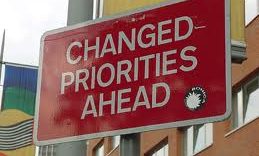
The second story told us that banks are being very lenient with troubled borrowers in order to improve their own reporting figures on problem mortgages. This includes payment holidays and moving customers onto interest only mortgages so that the banks don't have to report these cases as problematic.
Whilst at present repossessions are lower than anticipated, under the surface there may a perfect storm brewing for many householders. Let me explain:
- Many borrowers are struggling to meet their mortgage repayments due to high personal debt and/or unemployment.
- A recent survey has also shown that households' unsecured borrowings (i.e. credit cards and loans) are on the up. If someone is struggling to keep a roof over their heads then they will max out all credit avenues before defaulting on their mortgage. This then masks the underlying issues being stored up as repossessions become be delayed, so skewing the stats.
- In the current climate, the last thing lenders want is to repossess a property and try to sell it, probably at a loss, in a poor housing market. This will only push house prices lower.
- Any losses on these repossessed properties will have be shown in banks already beleaguered balance sheets.
- Banks are not a popular bunch at the best of times and putting families out on the streets, whilst they pay their bosses huge bonuses, will not go down well - especially those bailed out by the tax-payer.
- Trying to sell repossessed properties will only push house prices down further, delaying the possibility of interest rate rises. Banks want interest rates to rise so that they can earn a decent return on their lending.
All seems quiet at the moment but hold onto your hats if interest rates start to climb.




